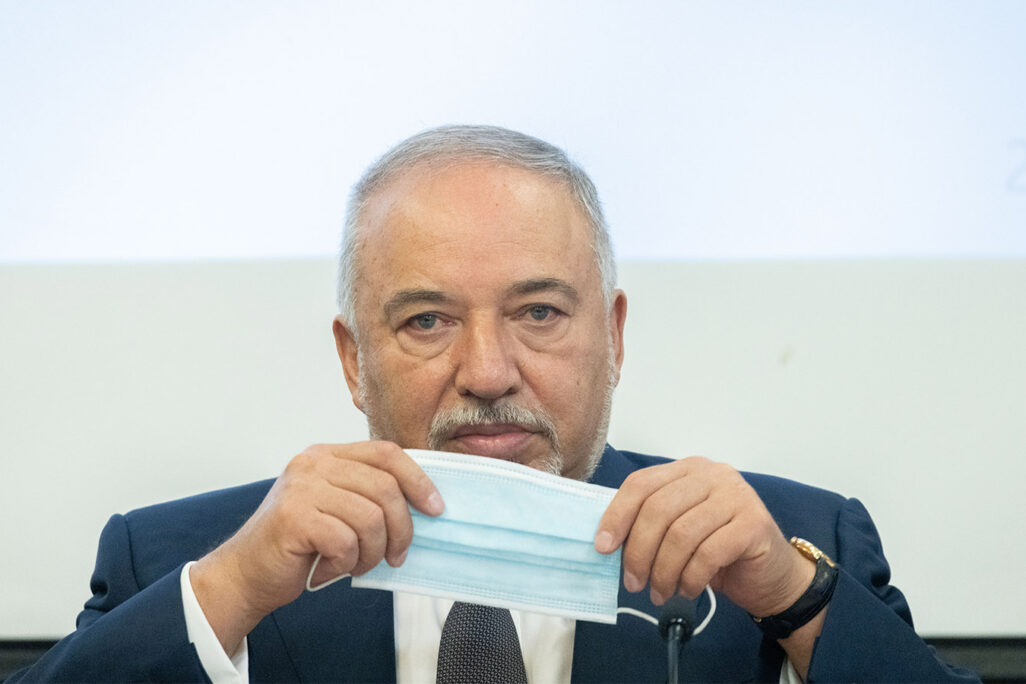
Avigdor Lieberman, of the secularist right-wing Yisrael Beitenu party, has now served as Finance Minister for almost three months. His approach to the role, once a subject of conjecture, is starting to become clear. Those who thought that as Finance Minister, Lieberman would act as he did while Defense Minister under Prime Minister Benjamin Netanyahu from 2016 through 2018 — that he would align with the spirit of the ministry and back up its civil servants — were wrong. Also mistaken were those who thought that Lieberman’s extremist rhetoric was simply hyperbole and that his actual governance would reflect a responsible centrism. Lieberman may have entered the Ministry of Finance as an unknown quantity, but the press briefing he held last Wednesday settles the matter: Lieberman is an ideologue. Right-wing and conservative economic policies are in his blood.
Esteemed experts such as Governor of the Bank of Israel Amir Yaron and retired Supreme Court Justice Elyakim Rubinstein have come out in opposition to the Finance Minister’s budget and reforms, warning of their potential threat to Israeli democracy. It doesn’t bother Lieberman.
As one of the veteran politicians in Israel, and having served as Foreign Minister, Lieberman has undoubtedly heard that the United States and Europe are investing trillions of dollars and euros into their economies in a response to the pandemic. French Finance Minister Bruno Le Maire compared the effort to the massive investment that had been required to pull France out of a recession “at the end of World War II.”
Throughout the Western world, countries are responding to the pandemic by establishing “New Deals”, supported by all the major economic institutions: the World Bank, the International Monetary Fund, the European Union, the Federal Reserve, and more. The COVID-19 crisis has necessitated the restoration of economies, infrastructure, and the semi-obsolete employment market, as well as the promotion of a move towards renewable energy alternatives.
But Lieberman contests this global economic consensus on an ideological level. “We are not the United States,” he declared in his first weeks in his new role. “We cannot just print money,” or in an updated version: “We do not have money to drop from a helicopter.”
While other developed countries invest enormous resources in their economies, intended, among other goals, to reduce deep gaps created during COVID-19 and to give a boost to the working class, Lieberman is refusing financial assistance to the State of Israel.
***
One of the most controversial aspects of the Arrangements Law — the omnibus reform legislation presented alongside the state budget — is the proposed agricultural reform, which would significantly reduce tariffs on fruits, vegetables, and eggs, threatening the livelihoods of many Israeli farmers as well as Israel’s food security. Lieberman is taking a hard line on the reform. In a press briefing, he said: “I will abolish the tax on imports, even if the agricultural reform is removed from the Arrangements Law.”
Lieberman is hardening his position on the agricultural reform in the face of opposition from members of the coalition, and shows no qualms about steamrolling Israeli farmers. His attitude is reminiscent of Netanyahu's heavy-handedness in the 2003 budget process, slashing budgets for myriad social programs.
Israeli farmers have come out in force against the proposed reforms, which would offer direct payments to farmers as a sort of consolation for the lowered tariffs, but in amounts so low that some farmers have described them as “a slap in the face.” Lieberman is unmoved by the outcry from the farmers, saying that if they rally against the proposed reform they will end up with the same lowered tariffs but without the conciliatory payments. “It’s a shame for the farmers,” he said. “If the reform doesn’t pass, I’ll save 3 billion shekels [that would have been put to direct aid.] I won’t back down on this. I’m going to remove the imports tax with or without the agricultural reform. The reform is only needed in order to transfer aid, that's all. If it doesn’t pass, I’ll be sorry, but the tariffs will still be removed.”
Lieberman also said that he does not intend to compensate businesses despite restrictions on the economy (“We’ll see how things go”); that he is in no hurry to provide a safety net to the airlines ("Maybe we don’t need so many planes or employees"); and that he is happy about the cancellation of unemployment benefits for those aged 45 and under, even though hundreds of thousands are still unemployed and turning to government-provided income support (“We have accelerated the pace of the return to work"). Not only is Lieberman not a pragmatist, he is also making no effort to disguise his bleak vision for society.
***
In both actions and rhetoric, Lieberman seeks to undermine any hope for an alternative economic policy to the neoliberalism that has been practiced in Israel for the past four decades. COVID-19 showed us the cracks in the neoliberal worldview, leading many to realize that a crisis of this sort requires investment in the public sector and an increased social safety net. Not so for Lieberman.
During Netanyahu’s tenure as Finance Minister from 2003 through 2005, which was characterized by brutal economic reforms, he was once asked whether he wanted to return to being Prime Minister. “Now I'm finally doing what I came to politics to do, precisely as Finance Minister,” he responded. Netanyahu was the architect of Israel’s right-wing economy in recent decades. Lieberman may see himself as his successor. And the red carpet is being laid out for him by the left-wing “social democratic” parties who are refusing to put up a fight.






